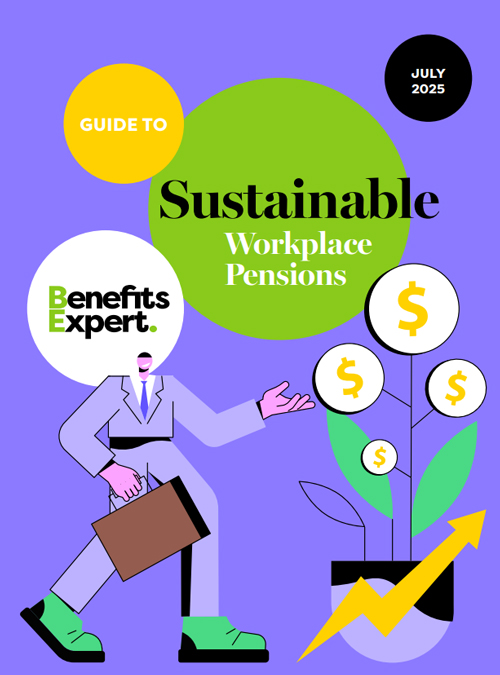Founded in 2003 with an aim to “open up wealth”, global platform FNZ has more than 6,400 employees spread across 30-plus locations worldwide.
Group chief people officer Renata Mrazova was appointed at the start of 2023 to establish and deliver the firm’s long-term people strategy across the globe.
What employee benefits do you currently offer?
At FNZ, our mission is to open up wealth and we do this by helping people invest in what matters to them. We take the same approach with our benefits – we invest in our employees and our benefits package helps them invest in their future, their family, and everything that matters to them.
We provide all employees with a competitive pension plan, as well as comprehensive health insurance and life and income protection insurance, to protect employees and their loved ones against any negative events. Of course, we are extremely excited to have recently announced our new family leave benefit to all our global employees. Under this new policy, all primary and secondary caregivers are entitled to 26 weeks of fully paid parental leave, even if they both work at FNZ. Employees are also entitled to up to eight weeks of paid bereavement leave, and up to two weeks of emergency care leave per year.
We also enable employees to select from a wide range of benefits, on a salary sacrifice basis, through our flexible benefits programme. This includes, for example, leasing electric vehicles, a website offering significant discounts from high-street stores and a cycle-to-work scheme.
How often do you review your benefits offering and why?
We are constantly looking for new benefits that can be offered to meet the needs of our employees. We also review our existing benefits on a regular basis to ensure that they remain competitive. Benefits programmes evolve constantly, and we scan the market to ensure we consider the latest developments to offer benefits that appeal to our employees. Some examples of our latest updates include the option to lease an electric vehicle, as well as the addition of ESG investment options to our pension plan.
How has your offering changed since the Covid-19 pandemic began?
Like many companies, we have adapted the way we work to allow greater flexibility for employees to work from home, as well as in the office. We do believe that employees benefit from coming into the office because this helps collaboration on projects. It also helps to make employees feel part of a team, which is often important for their social welfare. The pandemic has also changed how we support the holistic wellbeing of our employees. We hired a head of wellbeing who is implementing a number of initiatives to help overall employee wellbeing, for example by providing access to online yoga and mindfulness classes, as well as providing information about physical wellbeing and healthy eating. Finally, we have launched a new app from Happence that is designed to support employees to manage their wellbeing.
What are your current HR/benefits challenges?
From a benefits perspective, probably our biggest challenge is ensuring employees are fully aware of all the benefits that are on offer. We provide training sessions and access to our flexible benefits programme is available 24/7, 365 days a year. In addition, our internal communications play a key role in reminding employees regularly of the great benefits at their disposal.
How is your organisation supporting employees with the cost-of-living crisis?
We provide regular, all-employee sessions on how to better manage financial wellbeing, often delivered by third-party providers. We have always looked for new ways in which we can support our employees with managing their finances, independent from the cost-of-living crisis.
What are the main challenges for HR/benefits departments today?
Firstly, the need to keep employees up to date with benefits offering. We also find that the sheer number of different services and products on offer, particularly in the wellbeing space with different features, means that it takes time to sift through them to ensure we offer the most effective benefit or service to our employees.
Is there anything the Government could do that would help?
Support from governments to encourage financial education in school would be an excellent means to better prepare young adults to effectively manage their finances.
What do you foresee will be the hot topics for HR in the future?
With the cost-of-living crisis and financial wellbeing will be front of mind for our employees. This includes a range of subjects like budgeting, pensions and investments, financial planning and education, as well as income protection.
How do you ensure employees know about the available benefits?
We have a flexible benefits platform that is available 24/7, 365 days a year that provides information about all our benefits programmes. In addition, we arrange regular benefit education sessions throughout the year to help employees understand what benefits are on offer and how they can help them.
Which benefit(s) have the biggest take-up?
Medical insurance is the most popular. Likewise pension plan, which is mandatory with the option to opt out. The life and disability insurance is also popular. These are all benefits that FNZ pays for. They are followed by dental and critical illness insurance, with about 10% of employees opting for them.













